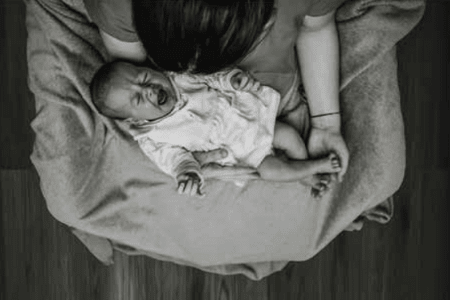Teaching Kids Healthy Habits: Ask Nicole February 2019
By Nicole M. Young MSW
My family loves food. Our activities revolve around where and what we plan to eat for breakfast, lunch, dinner, and all the snacks in between. We try to eat healthy foods more often than not, but we have our guilty pleasures – the foods we love and shouldn’t eat too much of but end up overdoing it anyway. Mine is cheese.

Most of the time it’s not an issue, but when my kids were on a recent break from school, we all spent more time eating, looking at screens, and lounging around. It was fun while it lasted, but now that we’re back to our regular routines, we’ve had to press the reset button on our eating and exercise habits. It’s less fun than eating cheese all day, but I have to remind myself that healthy habits help lead to a longer life (and more opportunities to eat cheese).
This monthly column provides tips for anyone who is helping raise children, based on the world-renowned Triple P – Positive Parenting Program, available to families in Santa Cruz County. If you have a question or idea for a future column, please email me at [email protected].
Dear Nicole,
Our pediatrician suggested making some changes so that my 5-year old daughter can be a healthy weight for her age. It will be hard to try the doctor’s suggestions, like not buying sugary drinks (my daughter loves juice!), encouraging more physical activity, and limiting screen time to one hour per day. I’m expecting a huge battle. Do you have any suggestions?
– Reina
Dear Reina,
Teaching children about healthy eating and active living can feel hard, especially if kids prefer or are used to certain foods, loose rules about screen time, and inactivity. At times, it can seem easiest to just give in – “One soda won’t hurt” – or give up – “I’d rather deal with too much screen time than deal with tantrums.” And it’s not always realistic for families to completely eliminate certain foods, drinks, or activities from their lives. But there’s a benefit to teaching children how to make healthy choices so that they learn to take care of their own health as they grow older. Here are some tips to try:
Try New Things as a Family
Your daughter may be more willing to try new foods, drinks, or activities if you’re doing it together. It can also be a great way to spend quality time together. For example, try going on walks or playing active games to encourage more physical activity. An active game can be as mellow as bouncing a ball back-and-forth, or something more physically demanding, like dancing, playing tag, or playing a sport. Start with something she’s interested in and make it fun. This will increase the chances she’ll want to do more of it.
Revisit the Family Rules
Meet as a family and create a few simple rules to help you make these lifestyle changes. For example, talk about how much screen time is considered healthy for kids her age, and let her know that part of your job as a parent is to help her be as healthy as possible. Introduce the new rule or limit you’re setting and involve your daughter in deciding how she wants to use her daily screen time. This can help by giving her control over a limited set of choices while adjust- ing to the new rule.
Start with Small, Realistic Steps
If it seems impossible to make immediate or drastic changes, identify a goal to work toward and start with small steps. For example, if you’re trying to have your daughter drink water, milk or other non-sugary drink instead of juice, start by gradually reducing the amount of juice you give your daughter each time, while offering water throughout the day. Or, if you’re trying to limit screen time to one hour per day, try reducing the amount of screen time by 5 minutes the first day or week (depending on how quickly you want to reach your goal), then 10 minutes the next day or week, then 15 minutes, etc.
Acknowledge Positive Changes
Give descriptive praise when your daughter follows the new rules or tries new things. This lets her know you notice and appreciate her efforts and encourages her to continue.
Final Thoughts
Teaching children to make healthy choices isn’t always easy, especially when it requires us (the adults) to change our own habits, too. Making lifestyle changes as a family, one step at a time, can make it feel easier and benefits everyone.
Nicole Young is the mother of two children, ages 14 and 18, who also manages Santa Cruz County’s Triple P – Positive Parenting Program, the world’s leading positive parenting program. To find a Triple P parenting class or practitioner, visit http://triplep.first5scc.org, www.facebook.com/triplepscc or contact First 5 Santa Cruz County at 465-2217 or [email protected].







